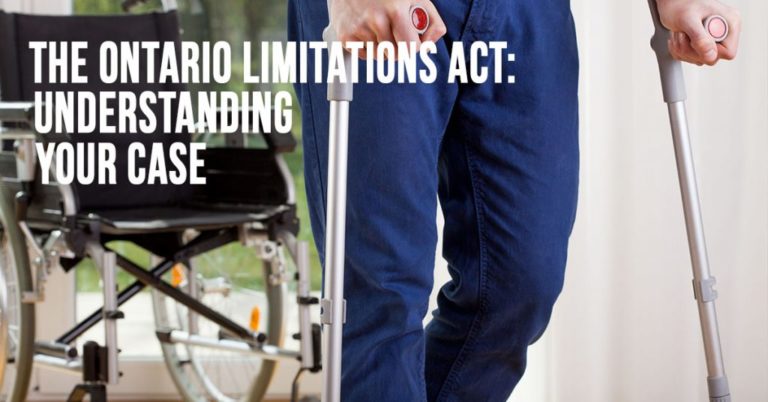How to Deal With Whiplash After a Car Accident
Whiplash might sound like something made up, but in reality whiplash can be a very serious matter. When you suffer whiplash after a car accident, it could lead to many worse issues, such as chronic neck pain and brain injury.
Neck and brain injuries are nothing to joke about.
Your life could become seriously derailed by a whiplash injury, and it’s not fair that you should deal with this because of someone else’s mistakes.
It’s time to get the facts on whiplash and start taking this injury seriously. You never know when you’re going to be rear-ended, but you can be prepared by knowing what you should do if you suffer whiplash after a car accident.
Get the facts now.

Whiplash 101: What is Whiplash?
Whiplash happens when your neck quickly and suddenly goes from backward to forward, causing damage to your neck tissue.
The most common cause of whiplash is a rear-end collision. That’s because the momentum when you get hit from behind is at the right spot to jerk your head like a whip.
However, you could still get whiplash from playing sports, physical abuse or trauma, or any other type of trauma where your body is shaken or jolted rapidly.
There are two forms of whiplash: minor and severe. Minor whiplash usually goes away on its own in few days, but severe whiplash can last anywhere from a few months to years.
Usually you can tell if you have severe whiplash if your initial symptoms are very painful, but everyone is different.
Getting to Know the Signs and Symptoms of Whiplash
If you’re suffering neck pain from an accident, it could be whiplash.
Are you experiencing stiffness, neck pain, or headaches? Those are the most common signs of whiplash.
Other common signs include headaches, dizziness, tingling in the arms, or shoulder pain. If your neck pain continues to get worse with movement, or you lose your range of movement completely, that’s also a giveaway.
In addition, some people also experience blurred vision, insomnia, depression, irritability, and memory issues. These symptoms could indicate brain injury or concussion as well, and should be looked at right away.

How to Treat Whiplash
Depending on the severity of your whiplash, there are a number of treatment options to help treat your injury.
First, your doctor will give you a physical exam to determine the severity of your injury. This physical exam will test your range of motion and determine which muscles are not functioning to their highest potential.
Next, you will likely be given x-rays or other imaging tests that will confirm your whiplash. Sometimes, x-rays don’t pick up on whiplash, so you might have to use a different form of test, like an MRI or a CAT scan.
After this, there are two steps you could take. Your doctor could give you over the counter pain medication, and/or you could start a rehabilitation program or physical therapy.
Many cases of whiplash will heal themselves, but sometimes you need a little more treatment. This could include rest, special exercises, and specialized medication. You could even be given a foam collar to rest your head and ease your muscles.
Make sure you keep everything you possibly can from your medical care to help strengthen your case in court. This includes medical documents, receipts from medications or equipment, and your doctor’s records.
Making a Whiplash Injury Claim
Whiplash injury claims can be tricky due to the nature of the injury. Since whiplash doesn’t always appear right away, it can be hard to prove that yours happened because of the accident.
Sometimes, whiplash doesn’t even show up on an x-ray, which makes it hard to bring proof to your personal injury case.
However, you still have options as long as you can find alternatives to prove whiplash in court. Most paramedics and doctors are aware that it takes a little bit of time for initial symptoms to set in and will account for that in your case.
Symptoms of whiplash generally start within about 24 hours, so keep watch for anything unusual within that time frame. Get medical attention as soon as you can. The longer you wait, the weaker your claim will be.

How to Maximize Your Whiplash Compensation
The most important thing you can do is seek medical attention as soon as you start feeling symptoms of whiplash. If you don’t, it becomes harder and harder to prove that your injury was a direct result of the car accident.
In addition to keeping all of your medical documents and records, make sure you also have a collection of documents from the scene of the accident. This can include the police report as well as any photographs you took.
Don’t wait too long. The Statute of Limitations in Ontario is 2 years for most personal injury cases. If you wait longer than that, you could risk your case being denied or your compensation lowered.
In a tort law case, you could be eligible to sue for pain and suffering, medical costs, income lost from time off work, caregiver costs, and/or emotional distress.
Contact your personal injury lawyer right away to go over the details of your case and figure out what your options are.

Contact Conte & Associates if You’ve Suffered From Whiplash After a Car Accident
It’s not fair that you have to suffer unbearable neck pain because someone else was being negligent. Our team of Toronto personal injury lawyers at Conte & Associates are sympathetic to your cause and believe that people should be held liable for their actions.
When someone else causes you pain, it’s time to get justice.
Our personal law offices in Whitby and Vaughan work with the top medical professionals in Ontario, from doctors to psychologists and therapists. Together, we work to build you the strongest case possible and get you the compensation you deserve.





